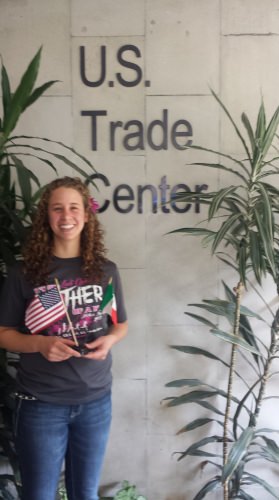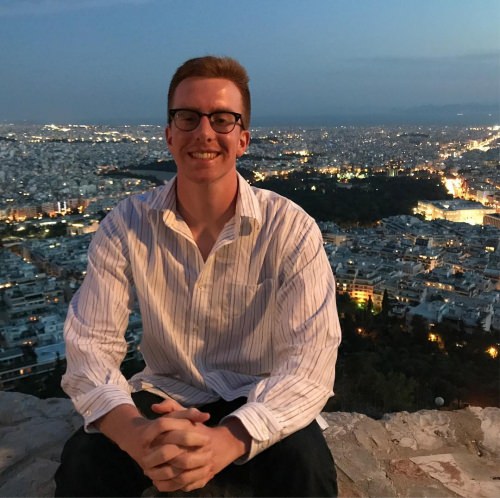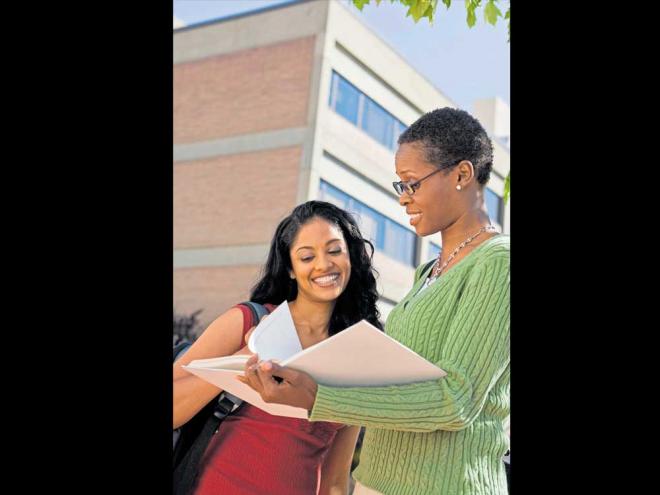While many UW–Madison students spend their summers taking classes in Madison or staying at home with family, others choose to do something a little more out of the ordinary: study abroad.
This summer, there are approximately 622 UW–Madison students studying abroad through International Academic Programs, up more than 19 percent compared to 2016. The students are scattered across the world, in 48 different countries.
Dan Gold, director of International Academic Programs, said studying abroad provides students with the opportunity to gain independence, learn a language, experience a new culture and expand their perspective of the world.
“Students … might not truly understand how societies and cultures could shape how people think,” Gold said. “With the interconnectedness of the world today and globalization, experiencing that first hand is an invaluable skill for both life and for professional work.”
One of the main goals of IAP is for students to be a part of a program that helps their professional development and earns them credit relevant to their degree. Academics are the core of the study abroad experience, Gold said.
From the Dominican Republic to Thailand, here’s where five UW–Madison students spent their summers abroad and what they learned because of it.
Understanding Mexican agriculture
For her study abroad experience, recent graduate Sydney Endres, who is originally from Lodi, Wisconsin, went to Mexico for two weeks through an Agriculture and Life Sciences program called “Mexico Food Systems and Society.”

Recent graduate Sydney Endres in Mexico COURTESY OF SYDNEY ENDRES
On the program there were five UW students, one UW professor and four students from different universities in Mexico. The group traveled throughout central Mexico, visiting a variety of farms. Professors from universities in Mexico also joined them to teach about various aspects of Mexican agriculture.
A dairy science and life sciences communication major, Endres wants to work on a farm in the U.S. some day, and the visit gave her a deeper understanding of the agriculture industry.
“The language and culture already interested me,” Endres said. “Being able to take that classroom experience to actually go into the country and practice the language and see firsthand what we’ve learned was really appealing to me.”
She saw firsthand the challenges faced by Mexican farmers, such as difficulty in adopting new farming technologies, Endres said. In some cases, the farmers need help from the government to get new farming equipment, but many Mexican farmers that Endres talked to didn’t trust their government. This makes getting new technologies a risk.
Endres came away with a better understanding of trade relations between the U.S. and Mexico, but also a broader perspective about the world in general.
Beyond learning more about agriculture, Endres said she loved experiencing a new culture. She said everyone was welcoming everywhere she went. Most people had a “slower pace” of life, Endres said, but not in a bad way.
“The thing that I enjoyed most was the people and just getting to understand a different culture,” Endres said.
Getting out of the glossy textbook in Greece
On the other side of the world, Grant Haxton, a junior double majoring in geography and history, said he enjoyed experiencing a new country and culture instead of reading about it in a “glossy textbook.”

Junior Grant Haxton sits atop Mount Lycabettus, a prominent hill in central Athens. The vista offers panoramic views of the Athens metropolitan area, including the parliament building and the iconic Parthenon. COURTESY OF GRANT HAXTON
Haxton, who is originally from La Canada Flintridge, California, went to Greece through the UW Classics program that lasted three weeks. He visited different cities and the countryside, as well as archeological sites and museums.
Some of the ancient sites didn’t “live up to the hype,” but others were “astounding,” Haxton said. Either way, seeing them in person was a completely different experience.
“Going to a place can really help instill a knowledge that you wouldn’t garner from reading a textbook or going to a class,” Haxton said.
Since Haxton’s program focused on ancient western culture, he said it was very pertinent to his history major. His program also involved a lot of travel throughout the islands and peninsula of Greece, something that helped Haxton learn more about the geography of the area.
In addition to learning, Haxton said he also made friends. There were 22 students in total in the program, all from UW–Madison. Haxton said it was fun to be around people his age and experience an alien culture with them.
Now back in Madison, they still spend time together, whether that be hanging out at the Terrace or getting dinner at the Nitty Gritty.
“Even though we’re resuming our ordinary lives … we still make time to hang out,” Haxton said.
[Source”timesofindia”]




